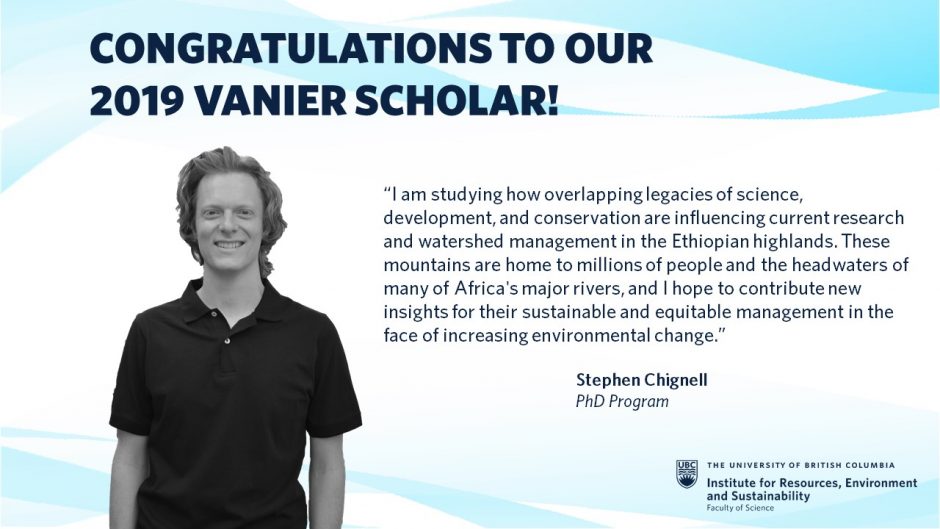
Congratulations to IRES PhD student, Stephen Chignell, for recieving the 2019 Vanier Canada Graduate Scholarships (Vanier CGS) award.
Q&A with 2019 Vanier Scholar Stephen Chignell:
Can you tell us about your thesis?
I am working at the intersection of hydrology, human geography, and geospatial science. My thesis builds off of my master’s research in Ethiopia, where I am working to understand the recursive relationships among societal change, land use change, and watershed processes.
How do you feel about winning the Vanier Scholarship award? What does it mean to you to win this award?
I’m thrilled to have received this award! The explicit interdisciplinary mission of IRES was a major reason I wanted to come to UBC for my doctoral research. However, working at the intersection of multiple fields can sometimes feel precarious as a student who is still working out a research identity. Receiving the Vanier Scholarship is a huge vote of confidence and provides the financial security to explore new approaches that integrate the natural and social sciences. I am convinced this kind of work is necessary for addressing complex sustainability challenges, and am incredibly grateful for the support to do it.
What is your research topic?
I am studying how overlapping legacies of science, development, and conservation are influencing current research and watershed management in the Ethiopian highlands. These mountains are home to millions of people and the headwaters of many of Africa’s major rivers, and I hope to contribute new insights for their sustainable and equitable management in the face of increasing environmental change.
What is something important you’d like to share about your research?’
The knowledge and concerns of local people are often left out in the design and implementation of environmental research–even when such work is designed to be “participatory”. I am convinced that issues of power, history, and culture influence what questions are asked, what knowledge is produced, and how such knowledge is subsequently used. Close attention to these issues–in conjunction with deep knowledge of physical processes–is necessary for research that is both scientifically rigorous and ethically sound. I am committed to this type of transdisciplinarity, and hope my work contributes towards a larger shift in human-environment research, from participation to genuine collaboration.
Congratulations Stephen!